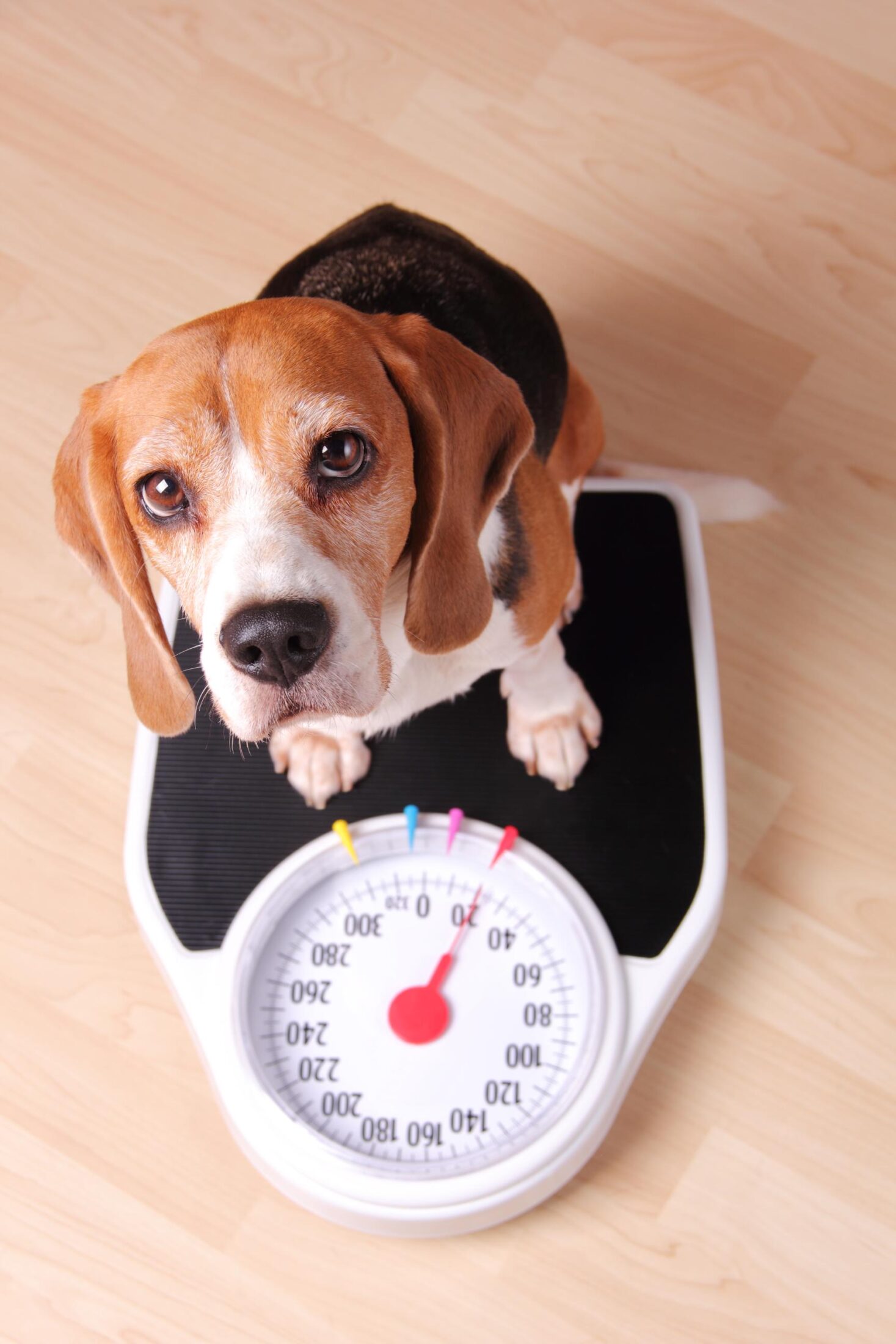
A wide variety of medical conditions are either caused or made worse by weight gain. Despite this fact, millions of American pets are considered overweight or obese, a largely preventable outcome with lifestyle and dietary adjustments.
Weight gain not only impacts a pet’s quality of life, but treating associated diseases, like heart disease and diabetes, can stretch an owner’s resources. Together, we can prevent and manage weight gain, improve gastrointestinal health, and promote overall well-being.
Staying On Top Of Things
Pet wellness exams are scheduled at regular intervals, usually between 6-12 months, so we may stay ahead of many possible issues. We look at the teeth and gums to prevent periodontal disease, discuss exercise and enrichment to thwart behavior challenges, and of course, talk about weight and diet to preempt weight gain.
We compare previous values to present ones as a way to design an updated path toward overall wellness. If a pet is even a pound or two heavier than they were 6-12 months earlier, we make a plan to curb further weight gain.
Age-Appropriate Nutrition
Pets have different nutritional needs during different life stages. To help them reach their full potential at every age they need a special diet. Eating too many calories, especially as they start to age, can quickly lead to unnecessary weight gain. Without steady and quick intervention, too many pounds can cause or exacerbate:
- Osteoarthritis
- High blood pressure
- Diabetes
- Kidney disease
- Cancer
- Respiratory problems
The good news is that weight-related health conditions are largely preventable with attention to their daily caloric intake and regular exercise. Limiting or eliminating all treats is a good place to start, using measuring cups to control portions, and adding extra opportunities to work out are all important strategies for weight loss. With careful attention, an overweight or obese pet can safely shed extra pounds and reach their ideal weight. Weight loss should be monitored by your pet’s veterinarian, as abrupt changes to a pet’s diet and nutrition can have serious side effects.
Improving Pet Gastrointestinal Health
The digestive system plays a vital role in a pet’s overall health. Not only responsible for breaking food down into viable nutrients for the body to use for energy, the GI tract aids in cellular health, detoxification, and immunity (among other things). Poor digestive health leads to a variety of problems, including:
- Diarrhea
- Vomiting
- Drooling
- Constipation
- Bloating
- Pain
Changes to a pet’s diet can disrupt a pet’s microbiome and their highly effective gut flora. Because these good bacteria are accustomed to receiving certain nutrients from a pet’s diet, dietary changes can cause serious problems. Slow, mindful shifts from one food source to another is the best way to prevent these side effects.
Gut Health for the Win
Supporting healthy digestion can be as easy as introducing prebiotics, probiotics, and specific enzymes. We are happy to help you find products that boost health, immunity, and vitality, all while keeping extra weight gain at bay.
If you have questions about your pet’s weight and overall well-being, please reach out to us at (732) 677-2180. Our vets and staff are always happy to help at True Care Veterinary Hospital.

